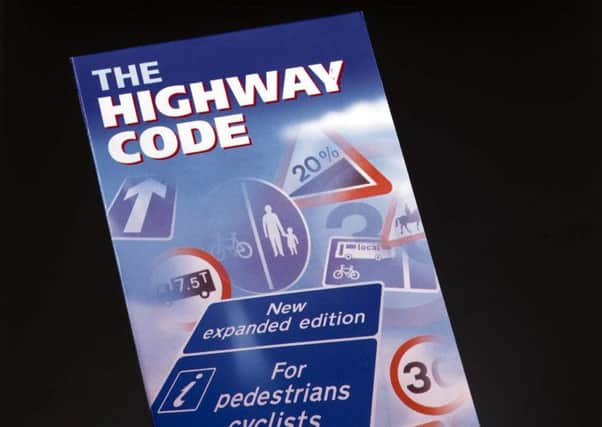Neil McNicholas: Driven to distraction by unsafe roads


Previously all women in the country were banned from driving, even foreign nationals living and working there.
It didn’t matter whether they held licences from their own countries, they were banned from driving simply because they were female.
Advertisement
Hide AdAdvertisement
Hide AdThe lifting of that ban is a great step forward for the women of the country, though having personally managed to survive seven years of driving on Saudi roads why exactly Saudi women (and others) want to join the mayhem I’m not entirely sure.
To venture out on those roads was always an exercise in self-preservation and survival.
Always in the back of my mind was something that a Saudi colleague once told me that their definition of “good driving” was to drive the way many did and arrive safely! The reality was that many people drove without having taken driving lessons much less having passed a test to obtain a licence. You’d often see drivers so young they could hardly see over the steering wheel.
I’ve held a UK driver’s licence for over 50 years and have also held Zambian, Saudi, and American licences. I consider myself to be a good driver (but then everyone says that don’t they?) and until quite recently always enjoyed driving in this country.
Advertisement
Hide AdAdvertisement
Hide AdLittle by little that has become no longer the case. A trip out on our roads is becoming increasingly an exercise in survival because of the poor driving standards that now seem to prevail.
I am of a generation that experienced the introduction of all sorts of innovations over the years in terms of road signs, road markings, and changes to the law. As a result we seem to have an awareness of the rules of the road that more recent generations of drivers simply don’t seem to have.
When I learned to drive you had to use hand signals when turning and slowing down. The introduction of indicator lights on cars was a novelty and the transition from one system to the other was something you were particularly aware of and it made you much more conscious of the need to use those new signal lights to inform other road users of your intentions – and it’s still a requirement of the Highway Code.
That thought doesn’t seem to enter into many drivers’ heads today, nor the concept of courtesy and consideration for other road users. Sometimes I wonder whether a national announcement has gone out on social media that suddenly so many drivers no longer indicate as they turn, change lanes, and pull onto and off slip-roads.
Advertisement
Hide AdAdvertisement
Hide AdI was taught to use my gears to slow down when approaching junctions and roundabouts and so on because at the time braking systems on cars were not always 100 per cent reliable. Now new drivers are taught to use their brakes much more – which I don’t believe gives as much control over your car as gradual gear-controlled “braking” does and which can be particularly important when driving in ice and snow for example.
I believe my generation was also much more aware of the speed we were driving, firstly because cars then weren’t engineered to be driven at speed, but, secondly, because there were more police patrols on the roads enforcing the law. These days there seems to be a growing disregard for speed limits that I put down to the “me, myself and I” generation that refuses to be inconvenienced by rules and regulations.
The frightening disregard for the rules of the road continues to be illustrated by the number of drivers still using mobile phones as they drive despite the law and despite the increased risk of fatal accidents. People can’t even walk safely using a mobile! How is a phone call worth risking life and limb? But people will continue to take that risk because they know the chances of being caught are negligible.
And all of this is why police resources must be increased so we can use our roads enjoyably and safely – driving, not just surviving.
Neil McNicholas is a parish priest in Yarm.